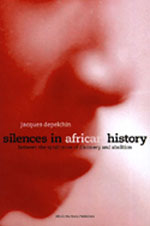The Anecdotal African in Dilemma

"The African voice is weak because it remains anecdotal; no measurements - no voice!" a friend once told me. In my recent trip to New Delhi, a Ugandan of Asian origin tore into this thesis when he dismissed a delegate's presentation thus: "We cannot rely on this presentation because it draws heavily from OECD, World Bank and IMF data; this is not the African narrative." He said.
In his book "Silences in African history between syndromes of discovery and abolition;" Dr. Jacques Depelchin eloquently points out that the African story has remained on silent mode because the system of oppression has never changed for the last 500 years. The system simply mutated from relating with Africans as savages to be colonized to that of poor people to be developed.
 |
| Dr. Jacques Depelchin |
For Jacques, the World Bank, the International Monetary Fund and other Western institutions are simply tools used to perpetuate the old order of capitalism. The Western world suffers the "discovery syndrome" that only recognizes what is perceived from its own worldview and negates all else. His (Jacques Depelchin's) thesis goes further to discuss the "abolition syndrome" by Westerners - that is they cause a problem and position themselves as liberators. For instance Westerners enslaved Africans and later positioned themselves as abolitionists and human rights advocates (which gives the false impression that the Africans themselves never bothered to resist slavery); they plunder the continent and continue to impoverish the continent through their international institutional prescriptions - and position themselves as anti - poverty advocates (giving the impression that the Africans forever sit and wait to be "developed").
Debate on merits and demerits of capitalism aside, Jacques' book is a must read for any African seeking to understand the apparent silence emanating from Africa. For instance he quotes Micere Mugo's story on a Kenyan girl who was unable to write her school assignment on Kenya's history because... "The history does not want to be written." According to the story, the father to the girl, a freedom fighter during the MAU MAU uprising had been captured, jailed and tortured. When he came out of jail, he had lost his mind.
The young girl could not relate to history because the grandfather who would have acted as its main source had raped her. (It is not stated whether the grandfather raped her at gunpoint as part of a psychological weapon to destroy resistance). The only measurable evidence available to us on the history of Kenya's colonial struggle is as told by the British; the rest is anecdotal! Should Africans continue on this silent mode?
 |
| Jacque's Book |
Jacques Depelchin's book provides a good starting point to interrogate available literature and develop new tools through which the African voice can cease to be merely anecdotal. History may have refused to be written courtesy of the existing institutions, but the fact that history is not always about one individual; the African people must take responsibility and write their own story. Africa urgently needs a secure premise on which it can base its development agenda other than the current state of "silences."
We may disagree with the Western measuring instruments but Africans must urgently measure, unzip their mouths and talk to the world. The Western societies have for a long time pushed for reason and logic as opposed to whim and prejudice. In the process, they developed measuring instruments that guide their affairs, which in the African context (as pointed out by Jacques) simply helped to reinforce their prejudices against Africans. The dilemma facing Africans at the moment is how to objectively pin point the measuring tools that enhance such prejudices; develop a new set that can enable the African voice to get out without inviting long range missile warheads from Western capitals.
Is the election of Barack Obama as the first African American president an indication that the West is ready to accommodate genuine African voices and or, is it simply a perpetuation of the old order of accepting only those that mirror the West?
